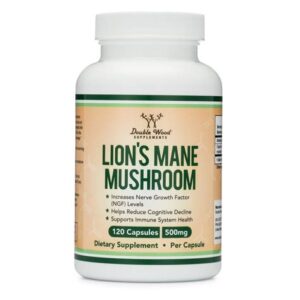6 Benefits of mushroom spores (Plus Side Effects and Dosage)
mushroom spores may benefit your immune and overall health. But they can also cause digestive side effects and could potentially be unsafe for certain people, including those taking certain medications.
The reishi mushroom, also known as Ganoderma lucidum and lingzhi, is a fungus that grows in various hot and humid locations in Asia (1 Trusted Source ).
It has a variety of potential health benefits, including boosting the immune system. However, its safety has recently come into question.
Below are 6 potential benefits of the reishi mushroom.
Click here to buy mushroom spores in the AU
1. Boost the immune system
One of the most important effects of the mushroom spores is that it can boost your immune system (2 Trusted Source ).
While some details are still uncertain, test-tube studies have shown that reishi can affect the genes in white blood cells, which are critical parts of your immune system.
What’s more, these older studies have found that some forms of reishi may alter inflammation pathways in white blood cells (3 Trusted Source ).
One 2006 study found that reishi could increase the number of other white blood cells in those with colorectal cancer (4 Trusted Source ).
In another older study, the fungus improved the function of lymphocytes, which help fight infections and cancer, in athletes exposed to stressful conditions (5 Trusted Source , 6 Trusted Source ).
However, more research is needed, as some other studies have found no effect of reishi extract on immune function or inflammation (7 Trusted Source ).

SUMMARY
mushroom spores may help enhance immune function through its effects on white blood cells. However, more research is needed.
2. Anti-cancer properties
Many people consume reishi due to its potential anticancer properties (8 Trusted Source , 9 Trusted Source ).
In fact, several test-tube studies have shown that it can lead to the death of cancer cells (10 Trusted Source , 11 Trusted Source , 12 Trusted Source ).
Some research has also investigated if reishi could be beneficial for prostate and colorectal cancer due to its effects on inflammation and certain signaling pathways involved in cancer development (13 Trusted Source , 15 Trusted Source , 16 Trusted Source ).
What’s more, one review indicated that the mushroom could benefit people with cancer when used alongside traditional treatment by increasing the activity of white blood cells and improving quality of life (17 Trusted Source ).
Still, more research on the effects of reishi on cancer development in humans is needed.

SUMMARY
Although mushroom spores may be beneficial for cancer prevention or treatment, more research is needed.
3. Could reduce fatigue and depression
Though mushroom spores effects on the immune system are often most emphasized, it may also reduce depression and fatigue.
One older study examined its effects in 132 people with neurasthenia, a condition associated with aches, pains, dizziness, headaches, and irritability (18 Trusted Source ).
The researchers found that fatigue was reduced and well-being was improved after 8 weeks of taking the supplements (18 Trusted Source ).
Another 2012 study on people with breast cancer found that taking reishi powder reduced fatigue, anxiety, and depression and improved quality of life after 4 weeks (19 Trusted Source ).
While mushroom spores may hold promise for people with certain conditions, it’s unclear if it would benefit those who are otherwise healthy.
SUMMARY
Some studies have shown that mushroom spores could decrease anxiety and depression as well as improve the quality of life in those with certain medical conditions.
4-5. Other potential benefits
In addition to its effects on the immune system and quality of life, mushroom spores has been studied for its potential to improve other aspects of health.

4. Heart health and blood sugar
A number of studies looking at people with both healthy and unhealthy levels of blood sugar and lipids found that mushroom spores may help decrease blood sugar, increase HDL (good) cholesterol, and decrease triglycerides (20).
At least one older study in healthy adults showed a slight trend toward lower lipid levels, but this was not statistically significant (7 Trusted Source ).
Additionally, some other studies have found no effect of reishi supplementation on cholesterol or triglyceride levels (21 Trusted Source, 22 Trusted Source ).
Therefore, more research is needed.
Meanwhile, some older animal and human studies also suggest that certain compounds found in the reishi mushroom could decrease blood sugar (23 Trusted Source , 24 Trusted Source ).
On the other hand, a 2016 study found no effect of reishi supplementation on fasting blood sugar or hemoglobin A1c, a marker of long-term blood sugar control (26 Trusted Source ).
Therefore, more research is needed here as well.
5. Antioxidant status
Antioxidants are molecules that can help protect cells against damage (27 Trusted Source ).
Many claim that reishi mushroom is effective at improving antioxidant status.
However, several older studies have found no change in the levels of important antioxidant enzymes in the blood after consuming reishi for 4–12 weeks (7 Trusted Source , 20 Trusted Source ).
SUMMARY
Some research suggests that mushroom spores could improve HDL cholesterol and blood sugar. However, other studies indicate that it does not improve cholesterol, blood sugar, or antioxidant levels.
Dosage recommendations vary based on the form used

Unlike some foods or supplements, the dose of reishi mushroom can vary depending on which type is used.
Commonly, a dried extract of the mushroom is used. In these cases, the dose is approximately 10 times less than when the mushroom itself is consumed (7 Trusted Source ).
For example, 50 grams (g) of mushroom spores itself may be comparable to approximately 5 g of mushroom extract. Doses of the mushroom extract vary but typically range from approximately 1.5–9 g per day (21 Trusted Source ).
Additionally, some supplements use only certain portions of the extract. In these cases, the recommended doses may be much lower than the values reported above.
SUMMARY
The dose of reishi mushroom varies based on the specific form. Consuming the mushroom itself provides higher doses, while extracts provide lower doses.
Possible side effects and dangers

Despite its popularity, some have questioned the safety of mushroom spores.
Some research found that those who took reishi mushroom for 4 months were almost twice as likely to experience minor side effects as those taking a placebo (17 Trusted Source).
Other research found that taking reishi mushroom extract for 4 weeks did not produce any detrimental effects on the liver or kidneys in healthy adults (10 Trusted Source).
On the other hand, significant liver problems have been reported in several case studies (28 Trusted Source, 29 Trusted Source ).
Still, because other factors were involved, it can be difficult to determine if the mushroom itself was responsible for the observed liver damage.
Nevertheless, there are several groups of people who should probably avoid reishi, including people taking other medications like anticoagulants or immunosuppressants (31).
SUMMARY
mushroom spores may cause minor side effects and has been linked to liver problems in some case studies. Some people should also avoid reishi, including those taking certain medications.
The bottom line
mushroom spores is a popular fungus used in Eastern medicine, which could help boost the immune system.
This fungus may also be able to decrease the size and number of tumors in certain types of cancer, as well as improve the quality of life for some people with cancer.
Most human research has shown that it does not improve cholesterol, blood sugar, or antioxidants, but it may be effective at reducing fatigue or depression in some cases.